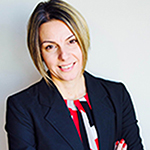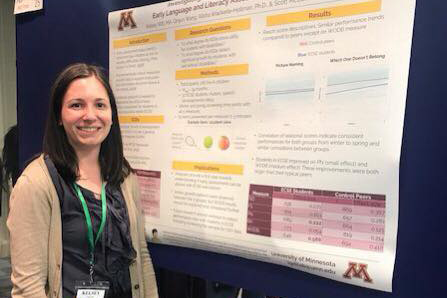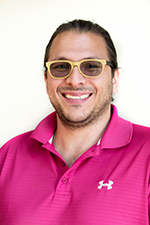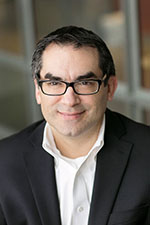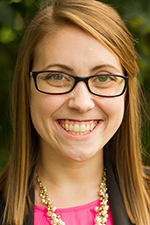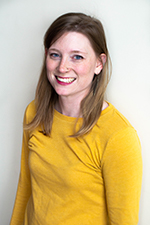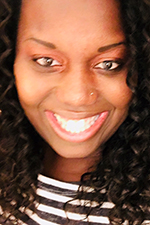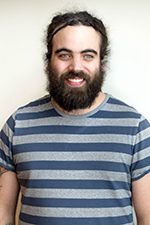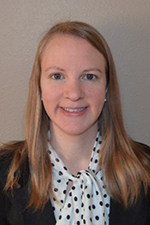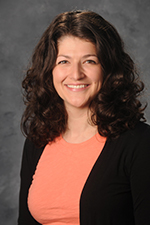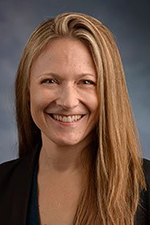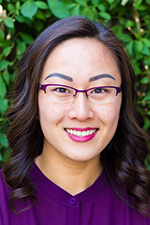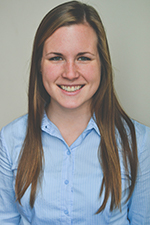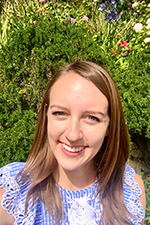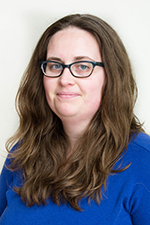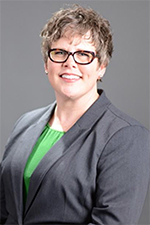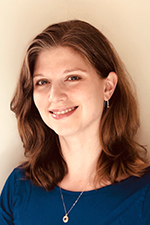The Department of Educational Psychology, College of Education and Human Development, and University of Minnesota offer many fellowships and awards to support students in their academic journey. Learn more about this year’s recipients and their awards below.
Current student awards
Alice Tuseth Special Ed Scholarship
Eric Wiltbank, MEd student in the special education program, has been awarded the Alice Tuseth Special Ed Scholarship. This scholarship is in memory of Alice Tuseth and supports the student by giving $2,500.
Beverly McConnon Scholarship in LD
Hayden Lang, an undergraduate student in the special education program with an emphasis in learning disabilities (LD), has been awarded the Beverly McConnon Scholarship in LD. This scholarship is to support special education students who have learning disabilities or are studying in the field of special education with an emphasis on learning disabilities.
Bruninks-Hagstrum Fellowship
Jose Palma, PhD student in the quantitative methods of education program, has been awarded the Bruninks-Hagstrum Fellowship. This fellowship includes a $3,600 award and is given to a current full-time graduate student with a study emphasis in educational policy and reform of educational and human services programs that focus on children and youth with special learning needs.
CEHD Hauge Fellowship
Aria Fiat, PhD student in the school psychology program, has been awarded the Hauge Fellowship. The CEHD Hauge Fellowship is a $1600 award given to a student in each department of the college. Any full-time graduate student in any CEHD department or program is eligible.
Debra & Scott Schipper Fellowship
Alec Kalbow and Rachel Ortiz, both MEd students in the special education program with a specialization in autism spectrum disorder (ASD), received the Debra & Scott Schipper Fellowship. This fellowship supports ASD teacher education by awarding $2,500 to each student and aims to advance best practices in this critical field. It is given to students with; academic promise, excellent academic standing, and with exceptional potential in their field.
Henry K. & Wilma McConnon Fellowship
Kendall Forseberg, MEd student in the special education program, has been awarded the Henry K. and Wilma McConnon Fellowship. This fellowship goes to a student dedicated to teaching in the area of LD, where the student can learn more about evidence-based teaching by exploring relationship between research and the practice of teaching.
Jack Merwin Graduate Assistantship Award
Bowen Liu, PhD student in the quantitative methods of education program, has been awarded the Jack Merwin Graduate Assistantship. Professor Jack Merwin, former dean of the College of Education and chair of Educational Psychology, created this award to support graduate students in educational measurement and evaluation. The goal is to provide promising young scholars in the field of educational measurement with 1) financial support like a scholarship, 2) opportunities to work with senior scholars in the field, and 3) leveraged dollars from the endowment so as to maximize the overall support.
Jeanette Paul Scholarship
Jordan Thayer, PhD student in the school psychology program, has been awarded the Jeanette Paul Scholarship. The Jeanette Paul Scholarship supports high priority educational programs for students and faculty in the College of Education. Such activities may include: scholarships or assistantships to students whose career goals are to work in secondary agencies; visiting professors or lecturers; and other academic activities.
Lawrence Scott Doss Scholarship
Jacob Anderson, MEd student in the special education program, has been awarded the Lawrence Scott Doss Scholarship of $1,200 which is given to support individuals dedicated to serving the special needs of developmentally disabled students.
Lesley Dahl Rylander Endowed Scholarship
Sara Lysne, MEd student in the special education program, received the Lesley Dahl Rylander Endowed Scholarship. This scholarship was established by Vern Rylander in honor of his wife, Lesley Rylander and provides $2,400 to support a special education licensure student with a preference for working in an elementary education setting.
Ruth Andrews Goudie Memorial Scholarship
Levi Sampson and Heidi Briese, both undergraduate special education students have been awarded the Ruth Andrews Goudie Memorial Scholarship. This scholarship is for undergraduate special education students in need and awards $2,500 each.
Susan Rose Fellowship
Alefyah Shipchandler, MEd student in the special education program, has been awarded the Susan Rose Fellowship. This fellowship is given to full-time graduate students enrolled in the special education program that show exceptional potential in their field. It supports the student by providing a payment that goes partially or totally to tuition, or as a stipend.
New student awards
DOVE/Diversity Pilot Initiative
The Graduate School has developed a pilot initiative to complement the existing Diversity of Views and Experiences (DOVE) Fellowship Program. DOVE provides one year recruiting fellowships to individual students who have been admitted to a program and a stipend of $25,000 academic year tuition.
The 2018-19 recipients of this award are:
Carlos Chavez, quantitative methods in education MA student
- Amaniel Murtu, quantitative methods in education, PhD student
- Thuy Nguyen, school psychology PhD student
- Erika Steinbauer, school psychology MA student
Graduate Student Fellowship (GSF)
Vimal Rao, PhD student in the quantitative methods of education program, of the Department of Educational Psychology has been awarded the Graduate Student Fellowship (GSF). The GSF is a highly competitive one-year fellowship including full tuition that is meant to recruit and retain outstanding students with diverse views and experiences to graduate school in the graduate student population at the University of Minnesota.
Russell W. Burris Memorial Fellowship
Vimal Rao, PhD student in the quantitative methods of education program, of the Department of Educational Psychology has been awarded $2,500 through the Russell W. Burris Memorial Fellowship. This fellowship is awarded to students in Educational Psychology who demonstrate outstanding academic merit and is in memory of Russell Burris, professor emeritus of educational psychology.
